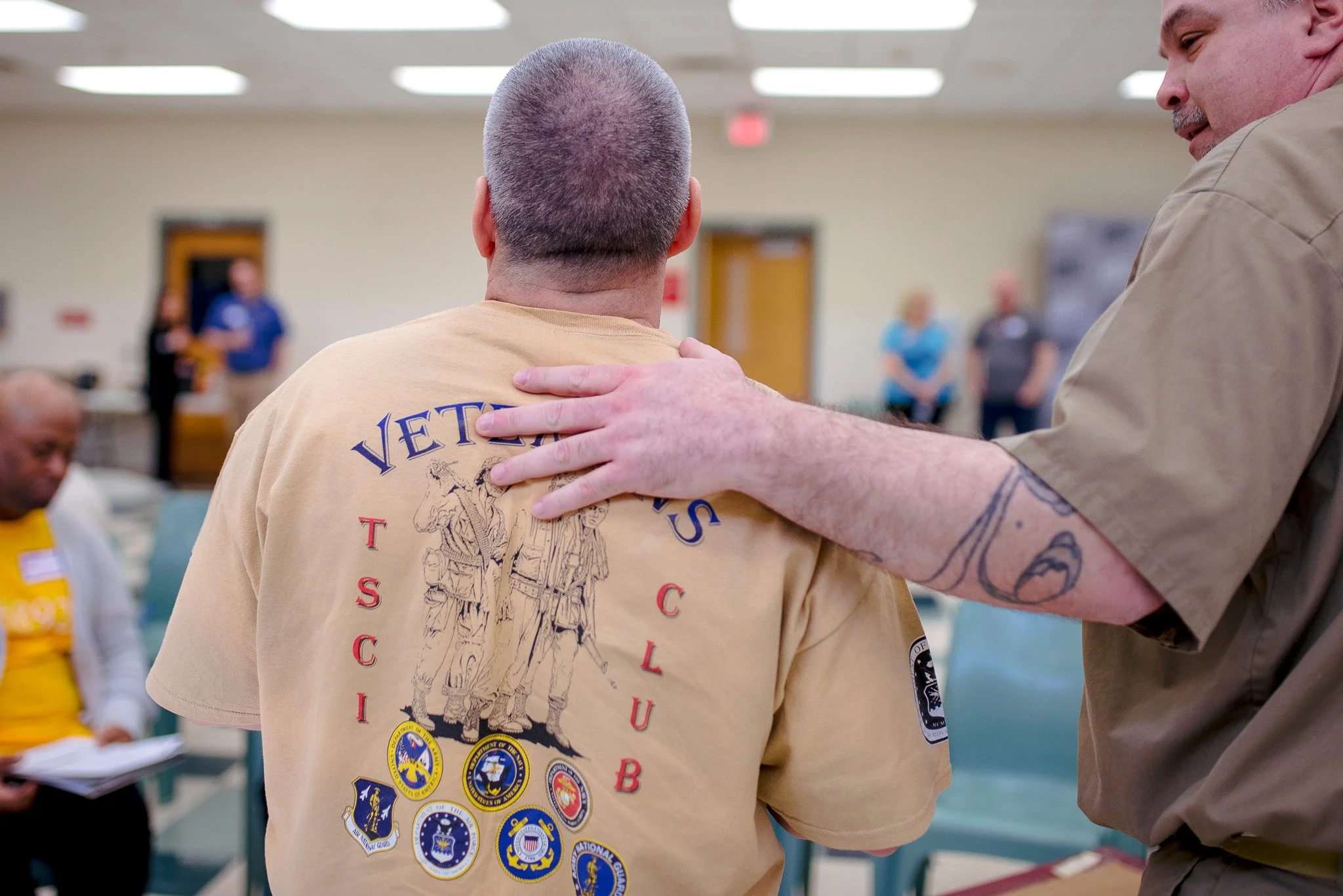Veteran’s Day ‘25: A Nation of Heroes Facing an Unfair Cycle
Every November we remember the sacrifices made by those who served our country, but for a growing number of veterans, that service has been followed not by pride and gratitude, but by the bars of a correctional facility.
According to the U.S. Department of Justice’s Fact Sheet: Access to Justice is Access for Veterans (2025), 107,400 veterans are currently incarcerated nationwide—nearly 8 % of state prisons and almost 6 % of federal prisons. In Nebraska alone, the Nebraska Examiner reports that more than 200 veterans are housed in state correctional facilities.
These numbers tell a story that is often invisible to the public eye: veterans who have faced combat trauma, traumatic brain injury (TBI), substance‑use disorders, and homelessness are disproportionately represented in the criminal‑justice system. The Council on Criminal Justice’s 2025 report on “Invisible Warriors” documents that 49,000 veterans were in state prisons in 2023—about 5 % of the total prison population—yet the true figure is likely higher because many veterans are not identified or counted accurately.
Why Veterans End Up Behind Bars
Research from From Service to Sentencing: Unraveling Risk Factors for Criminal Justice Involvement Among U.S. Veterans (2023) highlights several key risk factors:
| Factor | Impact on Veteran‑Justice Involvement |
|---|---|
| Combat Exposure | 2–3 % increase in criminal behavior; 30 % of incarcerated veterans have a history of homelessness, double the national rate. |
| PTSD & TBI | Veterans with PTSD are 61 % more likely to be involved in the justice system; those with TBI are 59 % more likely to experience incarceration. |
| Substance‑Use Disorders | 21–71 % of justice‑involved veterans have alcohol or drug use disorders, and these conditions raise arrest odds by 2–3.5×. |
| Homelessness & Unstable Housing | About 30 % of incarcerated veterans are homeless; the cycle of homelessness and incarceration is strongly intertwined. |
These statistics underscore that many veteran‑related offenses stem from untreated trauma or lack of support during the transition to civilian life, rather than an inherent propensity for crime.
Nebraska’s New Path Forward
Editor’s note (Nov. 11, 2025): Since the publication of this post, implementation of LB253, the Nebraska Veterans Justice Diversion Program, has been defunded and delayed until at least 2027, according to 10/11 NOW. The legislation, which aimed to create a statewide diversion pathway for veterans involved in the criminal-justice system, remains on hold pending future funding.
Nebraska has taken a bold step in addressing this issue. In April 2024, Governor Jim Pillen signed LB 253, making Nebraska the first state to expand judicial diversion programs specifically for veterans who can demonstrate that a service‑related condition contributed to their offense. As noted by Nebraska Examiner (June 7, 2024):
“With LB 253 taking effect July 1, 2025, judges across Nebraska will have the authority to divert non‑violent felony cases involving veterans into treatment and rehabilitation programs rather than incarceration.”
This law is built on recommendations from the Veterans Justice Commission—an organization that has highlighted how diversion can reduce recidivism among veterans while freeing up state resources for more targeted support.
RISE: Turning Bars Into Launchpads
RISE offers a comprehensive “inside‑out” approach that begins in prison and continues into the community. Our programs are designed to address the very risk factors that can push veterans toward reoffending:
| Program | What It Offers | Impact on Veterans |
|---|---|---|
| In‑Prison Program (6 months) | Character & leadership development, entrepreneurship training, peer mentorship | Equips veterans with job‑ready skills and a growth mindset before release |
| Reentry Services | Strengths‑based case management, housing, transportation, health care navigation | Provides the stability needed to avoid relapse into crime |
| Business Academy | 12‑week business plan development & pitch competition | Empowers veterans to build self‑employment opportunities |
| Family Wellness Collective | Trauma‑informed family education and support groups | Rebuilds relationships that can otherwise be a source of stress |
| Employment Services | Fair‑chance employer partnerships, job placement | Connects veterans with employers who value the discipline and skills gained in service |
RISE has helped numerous incarcerated veterans transition successfully into life beyond prison walls, heal their families, and find purpose moving forward.
How You Can Make a Difference
Volunteer – Join RISE for an in-prison milestone event or provide business research online for our participants. You can also check out At Ease Ministry to Incarcerated Veterans, a Lutheran Family Services program helping veterans work toward self-sufficiency and continue treatment for PTSD after their release..
Donate – Support RISE’s mission of breaking generational cycles.
Advocate – Spread the word about Nebraska’s diversion law and the need for continued policy reform.
Every action helps create a future where veterans can move from service to success rather than from service to sentencing.
Looking Ahead
November is a month of remembrance, reflection, and renewal. As we honor those who served, let us also commit to ensuring that their sacrifices are met with compassion and opportunity, not incarceration.
Join us in breaking the cycle of incarceration for the next generation of veterans.

